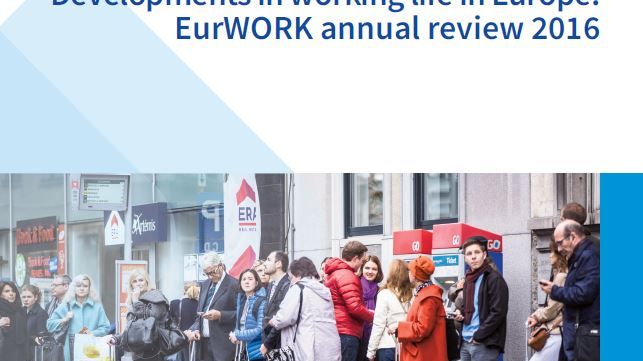Composition of NEETs in Europe
'NEET' is a broad label and includes young people in very diverse situations. This graph shows the composition of NEETs in the EU.
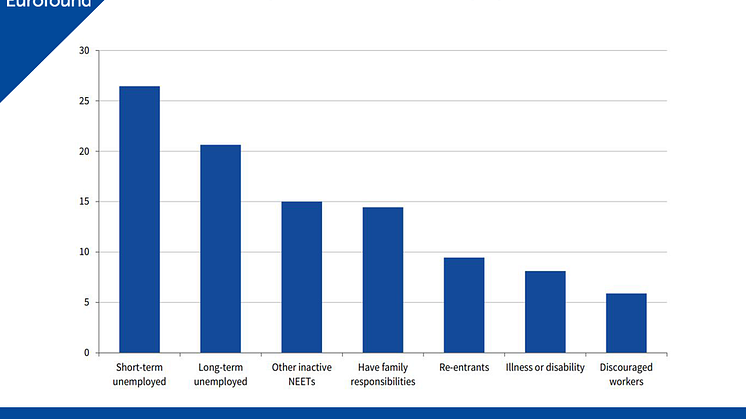
'NEET' is a broad label and includes young people in very diverse situations. This graph shows the composition of NEETs in the EU.

Young people are more affected than other age groups by long-term unemployment. While long-term youth unemployment is certainly not a new policy challenge for Europe, it now affects a wider range of young people than it ever did before.
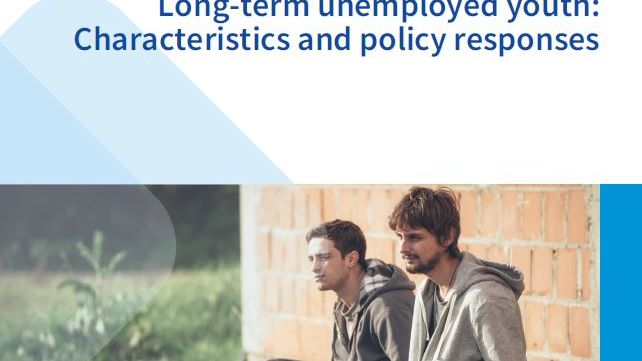
Eurofound’s European Quality of Life Survey (EQLS) 2016 shows that there are vast differences in reported abilities to make ends meet at household level in Europe.
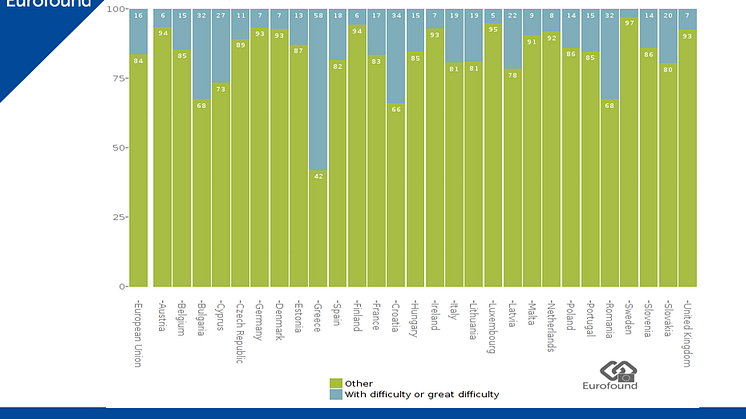
Eurofound’s new report Care homes for older Europeans: Public, private and not-for-profit providers is the most comprehensive exercise to date to gather all available data across Member States. The report provides a picture of the quality, accessibility and efficiency of services.
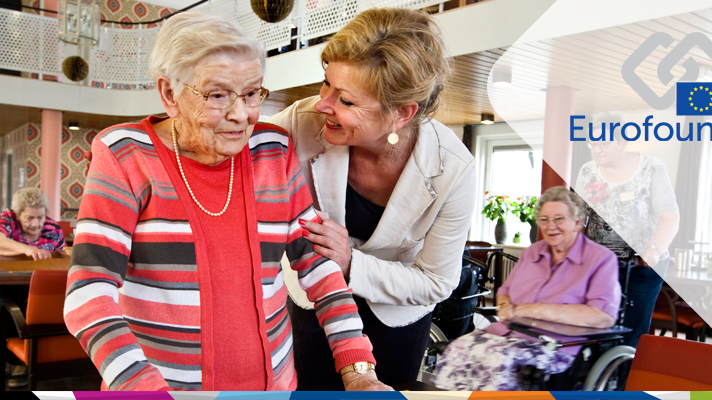
Eurofound will launch its new report on care homes for older Europeans at a special event on Tuesday 28 November 2017 in Europe House, Dublin.

Unemployment in the EU continues to fall, however more than one in four of the EU’s working-age population are economically inactive; meaning they are not working, and are not seeking work or are not available for work.

20 October is European Statistics Day, an initiative of the European Statistical Advisory Committee (ESAC) and with the support of the members of the European Statistical System and the European System of Central Banks.

Die Kategorie der NEET ist breit angelegt und deckt eine heterogene Bevölkerung ab. Um die verschiedenen Merkmale und Bedürfnisse der Untergruppen besser verstehen zu können und maßgeschneiderte wirksame politische Strategien zur Wiedereingliederung in den Arbeitsmarkt oder das Bildungswesen entwickeln zu können, ist es wichtig, eine Aufschlüsselung in Untergruppen vorzunehmen.
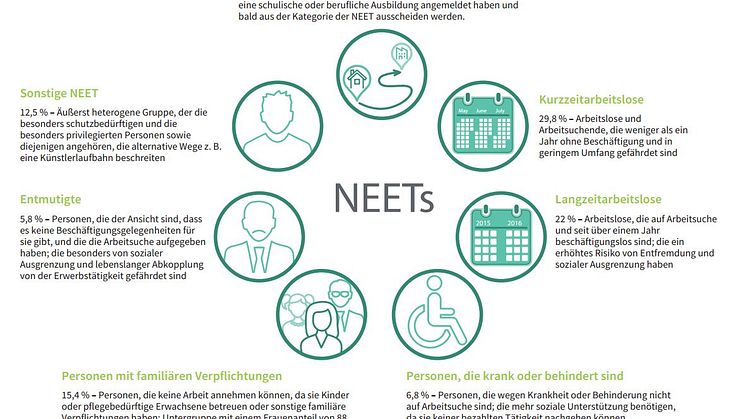
NEETs is a broad category encompassing a heterogeneous population. Disentangling the subgroups within it is essential for a better understanding of their different characteristics and needs, and for tailoring effective policies to reintegrate them into the labour market or education.
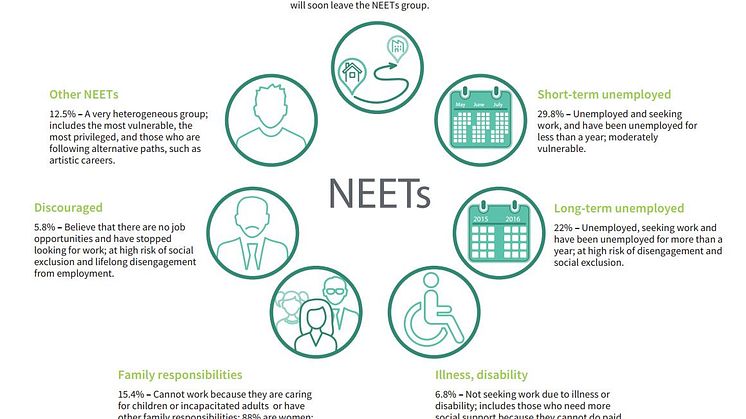
La vaste catégorie des NEET réunit une population hétérogène. Il est essentiel de distinguer des sous-groupes pour mieux comprendre leurs différents besoins et caractéristiques, et pour élaborer des politiques adaptées et efficaces leur permettant de réintégrer le marché de l’emploi ou le système éducatif.
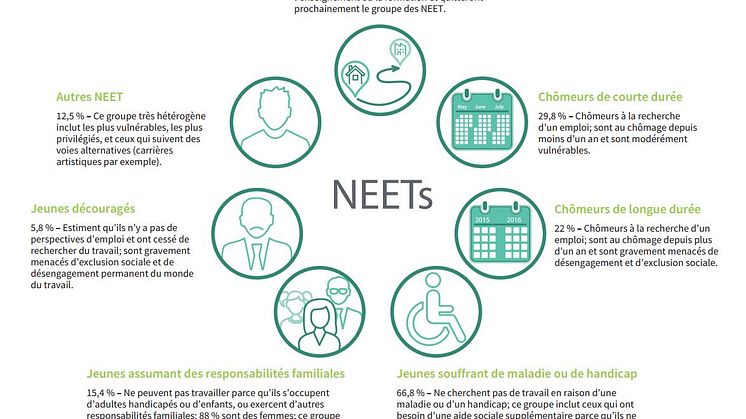
In the rapidly changing world of work, the traditional dichotomy of employee and self-employed is insufficient to capture the wide diversity of self-employed workers in Europe today. This report identifies five categories of self-employed, reflecting the wide-ranging attitudes, income levels, and health and well-being among this diverse group.

Working life in Europe is in a period of transition. Economic growth has picked up, employment continues to grow for the third consecutive year and unemployment rates – while still being above the level of 2007 in the EU28 - are generally in decline. However, Brexit and pay inequality present challenges for the future.
